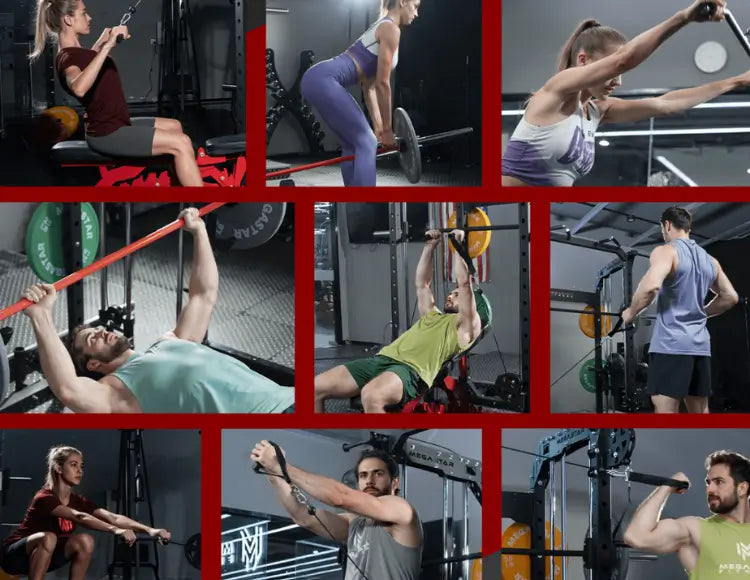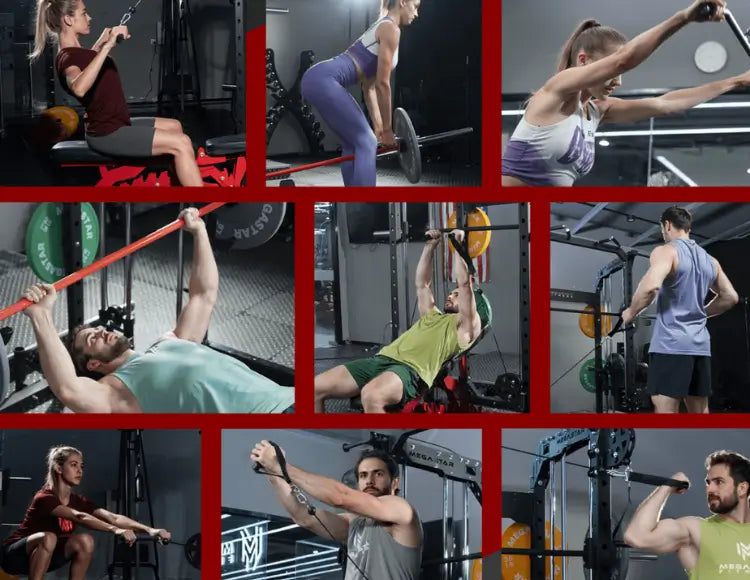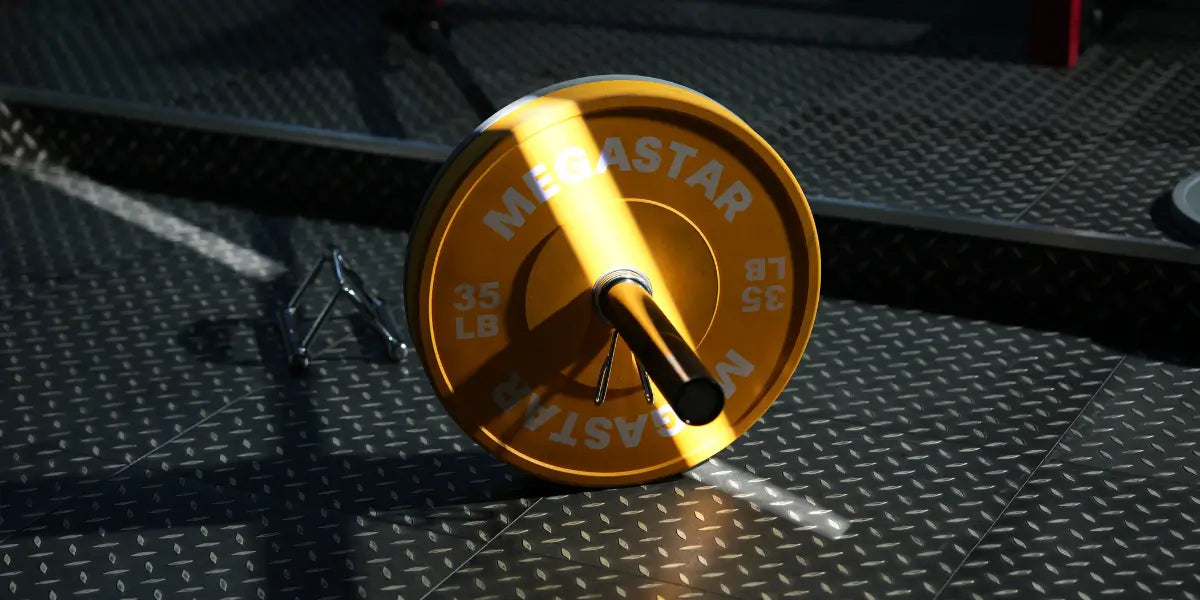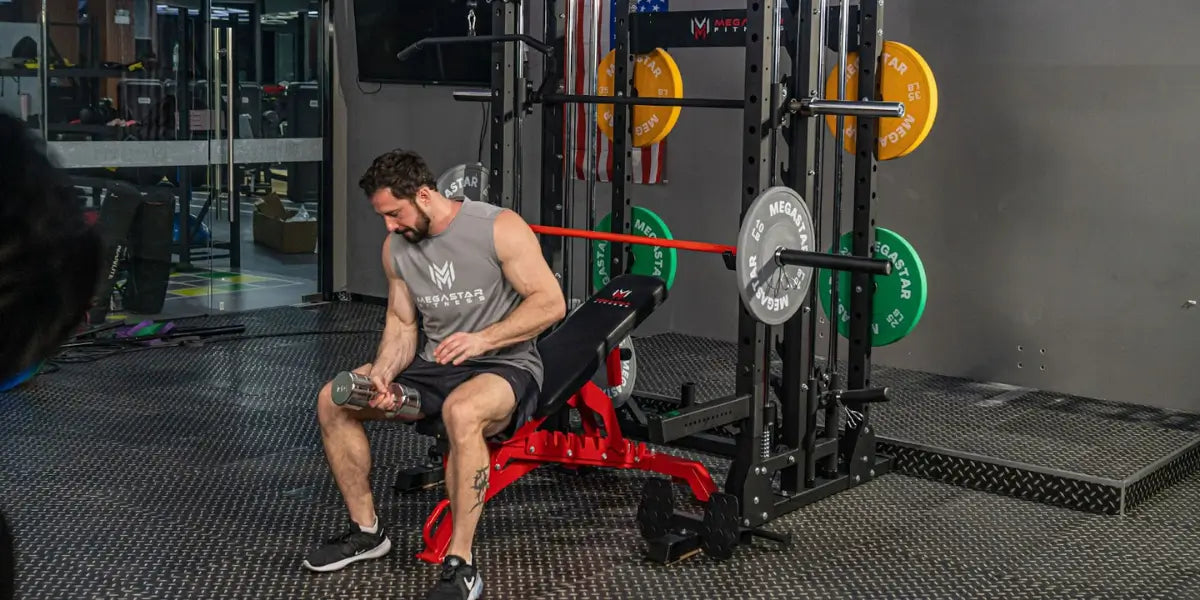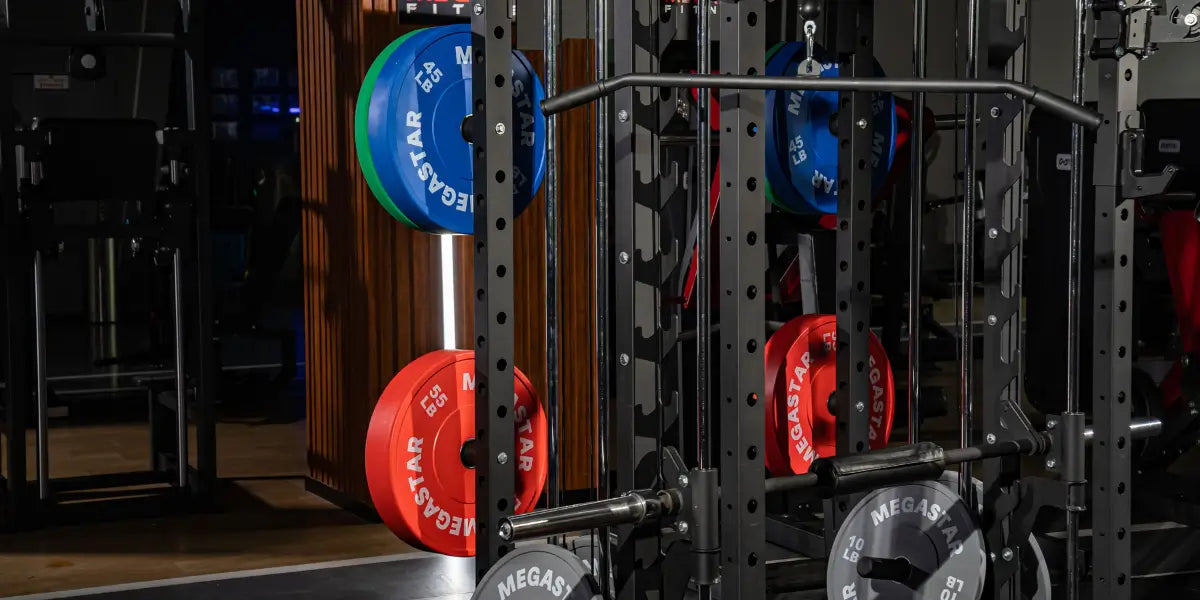Why You Should Include Power Rack Exercises in Your Routine
The Power Rack’s Role in Safe, Effective Training
The Power Rack is essential for anyone serious about strength training. It provides a sturdy frame that lets you lift heavy weights safely without needing a spotter. Safety pins and adjustable hooks allow you to catch the bar if you can’t complete a lift, reducing injury risk. This setup lets you push yourself harder and progress faster with confidence.
Who Benefits Most from Using a Power Rack
Power racks suit everyone—from beginners building foundational strength to experienced lifters chasing new personal records. They’re perfect for home gyms where safety and space are a priority, as well as for commercial gyms that need versatile equipment. If your goal is to build strength, muscle, or overall fitness, incorporating power rack exercises is a smart choice.

8 Essential Power Rack Exercises to Build Strength and Muscle
1. Squats — Build Strong Legs and Glutes
Squats are the cornerstone of lower-body training. The power rack lets you position the bar at the right height and set safety pins just below your lowest squat point to protect you if you fail. This exercise targets the quads, hamstrings, glutes, and core, improving overall leg strength and stability.
2. Overhead Press — Strengthen Shoulders and Stability
The overhead press builds strong, stable shoulders and improves core control. Use the rack’s adjustable hooks to start the press at the right height and re-rack safely. Proper form and controlled movement are key to avoid shoulder strain.
3. Pull-Ups — Train Your Back and Arms
Most power racks include a pull-up bar, which allows you to strengthen your upper back, biceps, and core. Variations like chin-ups or wide-grip pull-ups help target different muscles. Pull-ups also improve grip strength, which benefits other lifts.
4. Deadlifts and Rack Pulls — Power Up Your Posterior Chain
Deadlifts target the entire posterior chain, including the back, glutes, and hamstrings. Rack pulls, a deadlift variation performed with the bar starting on the safety pins, reduce the range of motion to focus on the lockout phase. This helps build strength safely and addresses sticking points in the lift.
5. Bench Press — Develop Upper Body Strength
Place a bench inside the rack to perform the bench press safely. The safety bars protect you if you fail the lift, letting you push heavier weights confidently. This classic exercise targets the chest, shoulders, and triceps.
6. Barbell Rows — Build a Thick, Strong Back
Barbell rows strengthen your mid-back, traps, and arms, improving posture and pulling power. Set the bar at a comfortable height on the rack for easier unracking and racking. Maintain a flat back and controlled motion to avoid injury.
7. Shrugs — Focus on Traps for Upper Back Thickness
Shrugs isolate the trapezius muscles, adding thickness and definition to your upper back. Using the rack to hold heavy weights safely, perform slow, controlled shrugging motions for maximum trap engagement.
8. Hanging Leg Raises — Core Strength and Control
Using the pull-up bar on your rack, hanging leg raises effectively target the abdominal muscles and hip flexors. This exercise improves core stability, essential for all compound lifts.

Common Challenges when Training with a Power Rack and How to Fix Them
Rack Setup And Adjustment for Safety and Comfort
Incorrect positioning of safety pins or hooks is a common issue. Always set safety pins just below your lowest point in exercises like squats or presses to catch the bar if needed, without limiting your range of motion. Adjust hooks and pins according to your height and limb length for optimal biomechanics.
Avoiding form Mistakes Under Heavy Loads
Bad habits such as rounded backs during squats or flared elbows during presses increase injury risk. Start with lighter weights to master proper form. Recording yourself or seeking professional feedback can help identify and correct errors early.
Managing Space and Equipment Limitations
If gym space is limited, focus on exercises needing minimal equipment—squats, pull-ups, shrugs, and hanging leg raises only require the rack. For bench presses or rows, use a compact bench or sturdy alternatives.
Structuring Your Power Rack Workouts for Maximum Results
Balancing Strength and Muscle Building
For strength gains, focus on lower reps (3-6) with heavier weights and longer rest periods. For hypertrophy, moderate reps (8-12) with shorter rest work best. Combine compound lifts like squats and presses with accessory exercises such as shrugs and hanging leg raises for balanced development.
Progressive Overload without Sacrificing Safety
Track your workouts and gradually increase weights or reps. Only add load when you can maintain perfect form and experience no pain. This helps build strength safely and sustainably.
Incorporating Mobility Work and Recovery
Begin each session with dynamic warm-ups to prepare joints and muscles. Include post-workout stretching and mobility exercises to maintain flexibility and reduce soreness. Prioritize rest and sleep to support recovery and gains.

Pro Tips for Getting the Most Out of Your Power Rack
Perfectly Adjust the Rack to Your Body
Measure your height and limb lengths to set hooks and safety pins at positions that allow comfortable lifts. Regularly check and adjust these as you switch exercises on your Power Rack.
Track Your Progress to Stay Motivated
Use a workout log or app to record weights, sets, reps, and how you feel each session. Tracking progress helps you stay motivated and recognize improvements.
Break Through Plateaus with Variation
If you hit a plateau, try changing grips, stance, tempo, or incorporating accessory movements targeting weak points. Variation keeps training fresh and challenges muscles differently.
Conclusion: Master These Key Exercises to Unlock Your Power Rack’s Full Potential
Mastering these eight power rack exercises will help you build strength, muscle, and confidence in your training. Prioritize proper setup, solid form, and gradual progression. Combine this with mobility work and rest, and your Power Rack will become the cornerstone of a safe, effective fitness routine.

